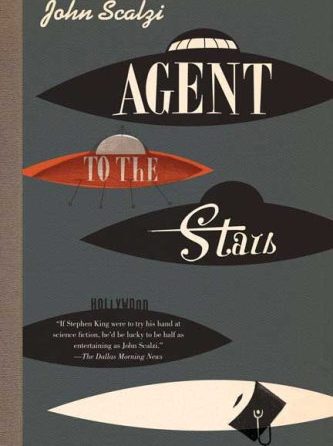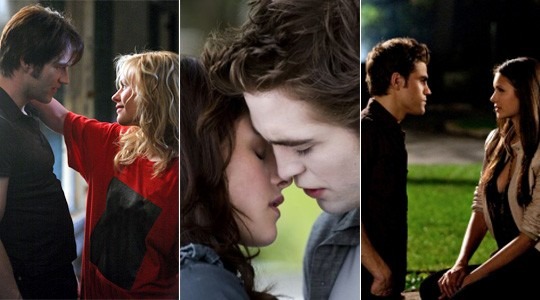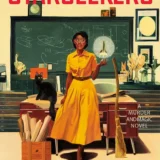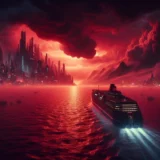 When I was a child – a first generation fan of the 1977 film – the idea would have seemed impossible, like trying to conceive of too many Christmas presents.
When I was a child – a first generation fan of the 1977 film – the idea would have seemed impossible, like trying to conceive of too many Christmas presents.
I had Star Wars books, Star Wars comics, Star Wars records, Star Wars stationery, and I still thought the world’s chief problem was that there was not enough Star Wars in it.
Today, I blog about the original film, so it occupies more of my time than might be considered healthy. And yet I’m starting to think there may be too much Star Wars around.
I don’t mean that there’s not a demand for it, of course. The continued success of the merchandising, the books, the TV series and so on suggests that there’s a market for more Star Wars than you could wave a lightsaber at. But it seems to me that there is a danger of devaluing the currency and eclipsing the freshness and fun of that original 1977 film.
 The Star Wars spin-off industry – or “expanded universe”, as we’re supposed to call it – began soon after George Lucas’s original film, with the publication of Alan Dean Foster’s novel Splinter of the Mind’s Eye. Shortly after that, the authors of the original Marvel Comics adaptation of the film continued the story while under instructions not to develop any romantic plots or let Luke Skywalker meet Darth Vader.
The Star Wars spin-off industry – or “expanded universe”, as we’re supposed to call it – began soon after George Lucas’s original film, with the publication of Alan Dean Foster’s novel Splinter of the Mind’s Eye. Shortly after that, the authors of the original Marvel Comics adaptation of the film continued the story while under instructions not to develop any romantic plots or let Luke Skywalker meet Darth Vader.
But Star Wars spin-offs got a new lease of life in 1991, with the publication of Heir to the Empire, the first in a trilogy of novels by Timothy Zahn, set after Return of the Jedi. I read that one and thought it was good, but as Zahn’s novel was followed by a bewildering array of books by other authors, I felt no inclination to keep up. There is only time to read a finite number of books in this life, and if you try and keep pace with the Star Wars novels, you’re going to be doing nothing else.
As the spin-offs mushroomed, Lucasfilm started to develop a policy about what counted as part of the saga’s official continuity. It was reminiscent of that period around the fourth century A.D. when church elders started settling which scriptures were going to make it into the New Testament. Lucasfilm even used religious-sounding terminology as it handed down rulings on which works of fiction constituted part of the “canon”.
The spin-off industry paved the way for George Lucas’s own return to the Star Wars saga, of course, which in turn led to countless more books, comics, TV series, video games and so on.
I’m the last person to judge people by what stories they enjoy. But when such a large chunk of the SF section in any given bookstore is given over to Star Wars, you have to wonder what chance there is of its fans discovering the literature that Lucas drew upon in the 1970s.
What’s more, I think people are in danger of losing sight of why the 1977 movie was so great. That film tapped into the potency of a host of other narratives. It was inspired by Flash Gordon and it unashamedly borrowed imagery and incidents from all kinds of literature and movies – SF, westerns, war films and much more. It was the greatest family movie since The Adventures of Robin Hood. But I don’t think the general public think of that sublimely exciting first film when they think of Star Wars; I think the title now makes them think instead of an almost infinitely bloated spin-off industry and the more obsessive members of its fandom.
And what happened to George Lucas, that earnest 33-year-old writer-director who persuaded 20th Century-Fox to finance his space adventure? Star Wars was his third film – and his third good film. A great creative future should have lain ahead of him. Yet for the rest of his career he became Mr Star Wars, frequently protesting that he was really interested in small, experimental movies, but never making them.
 Of course, some good things have emerged from the Star Wars industry. For example, I’ve seen and enjoyed some of the Clone Wars TV series, which seems much more in keeping with the Flash Gordon spirit of the original film than Lucas’s own prequels did. But it’s hard to stay interested in the franchise when there is so much of it.
Of course, some good things have emerged from the Star Wars industry. For example, I’ve seen and enjoyed some of the Clone Wars TV series, which seems much more in keeping with the Flash Gordon spirit of the original film than Lucas’s own prequels did. But it’s hard to stay interested in the franchise when there is so much of it.
I now feel oddly ambivalent about the prospect of a Star Wars Episode VII. I suspect it’ll be a good film, because I’ve liked all JJ Abrams’ films so far. But even if he delivers a great movie, Abrams won’t be involved in the franchise forever.
Meanwhile, Disney has talked about alternating further episodes of the saga with spin-off films devoted to individual characters. The studio already owns the Marvel movies, which it seems to produce faster than the TV industry grinds out sitcoms, so it looks as though we can expect Star Wars to be milked just as relentlessly.
If there really is such a thing as too much Star Wars, Disney is surely determined to find out.









Quick answer: Yes, there is such as thing.
I completely agree – after all, Hamlet, Great Expectations, War and Peace never had sequels. Not that I’m comparing! I think good things should have, like the stories they tell, a beginning, a middle and an end. I feel much the same about sequels. Utterly pointless, boring and unimaginative – not to mention a completely cynical ploy to pry as much money as possible out of the hands of the fans who built the empire in the first place. Having said that, I felt strongly that both the second Star Wars film (The Empire Strikes Back) and Aliens were much better than the first films in the series. And haven’t been bettered since.
Well said Darren. I have a lot of problems with the ‘expanded universe’, not least being that it has become a cultural juggernaut eating up the time and money which might otherwise leave room for more stimulating things. Both on the part of filmmakers and audiences. But beyond that there is the sense that it has all become utterly joyless, an endless excercise in nostalgia for what was already nostalgia when it was new in 1977! It was fun and exhilerating and fresh then, but now it is as rank as a month old kipper. Someone please take it away, and all the other tired old franchises and lets have something new. Isn’t science fiction supposed to be about the imagination, not endlessly rehashing the entertainment equivalent of comfort food?
Well, this post has struck a chord with me.
I think most ‘franchises’ as they’re called tend to dilute the power of the original, inspired creation. For example, each ALIEN sequel and spin-off just goes through the motions of chest-bursting, acid, face-hugging, weird experiments etc., making the original one seem – hackneyed.
The Clone Wars, series 1 at any rate, seemed to be over-laden with dull Monklike Jedi, doing their standard quota of light-sabering [yawn] and lazer-bolt deflecting 5-10 minute battles. I loved old Ben Kenobi, that mysterious wizard and the half-spoken, hinted-at Clone Wars. I would try to imagine what it was like…
I agree with Harry Plinkett in his famous Prequel reviews when he said lightsaber battles used to be about two combatants circling one-another and TALKING. Now it’s some sort of acrobatic, formulaic Ninja routine. The new stuff, as you hinted, has lost touch with the original cultural inspirations [westerns, fairy tales, Flash Gordon…] and seems to just reference itself. Perhaps this is part fo the reason why it’s also become humourless for peope like me. I can’t relate it to real life as much as I could with the ’77 movie.
I could go on…. but I’ll stop. People don’t tend to read epic posts!
I totally agree. After watching ‘Raiders Of The Lost Ark’ recently, the same can maybe be applied to the Indiana Jones series too. I love the pulps and the sparkle and influences that were evident from the earlier movies, in particular the first ones, had disappeared by the time we got to the recent prequels and latest movies. Such a shame, but it’s probably why the originals are still quite dear to fandom’s heart. I’m hoping the new Star Wars movies go back to the pulp Sci-Fi, action adventure of the original, but I’m not to optimistic.